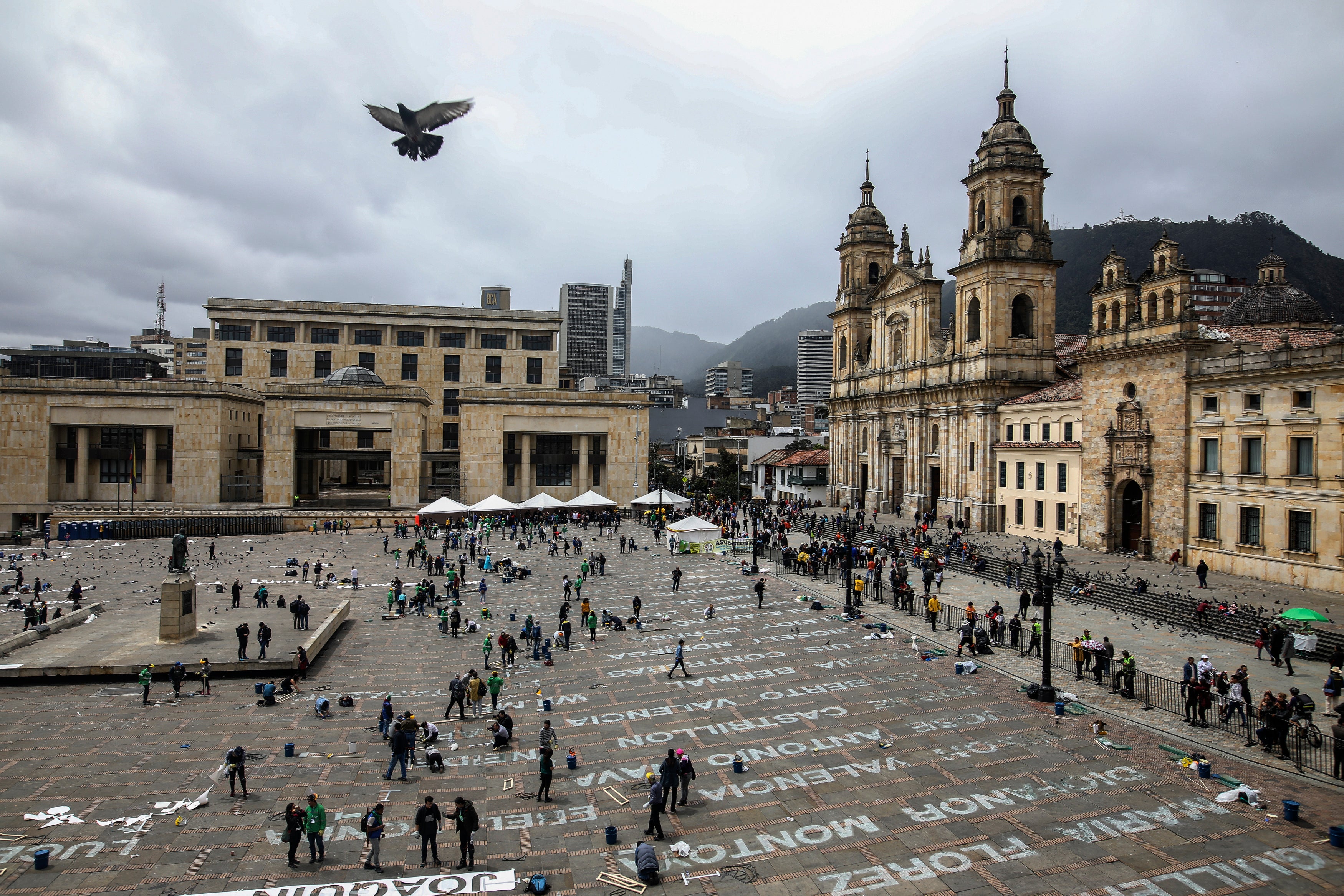UN registers steep rise in murders of Colombian activists
Assassinations of human rights leaders and mass killings of civilians are increasing at a worrying pace in Colombia, according to a United Nations report

Slayings of human rights leaders and mass killings of civilians are increasing at a worrying pace in Colombia, according to a United Nations report published on Tuesday.
The annual U.N. report on the human rights situation in Colombia found that violence is “intensifying” in some rural areas where state presence is weak and armed groups are fighting for territorial control following the 2016 demobilization of the Revolutionary Armed Forces of Colombia (FARC) rebel group.
According to the U.N. report, at least 133 human rights defenders were murdered in Colombia in 2020, a 23% increase from 2019.
The United Nations also registered 76 massacres across the country last year, which are defined as events in which three or more civilians are executed at once. The number of massacres registered was “almost double” the number in 2019 and was the highest number since 2016, said Juliette de Rivero, the United Nations High Commissioner for Human Rights representative in Colombia.
The report will be presented to the Human Rights Council in Geneva on Thursday by U.N. High Commissioner for Human Rights Michelle Bachelet.
The findings were published as Colombia’s government struggles to diminish violence in rural areas that were once controlled by the FARC and where illegal activities like cocaine trafficking, timber smuggling and wildcat mining still exist.
These areas are now fought over by armed groups that include the National Liberation Army, the Gulf Clan and former FARC rebels who refused to join the 2016 peace deal with Colombia’s government.
The United Nations urged Colombia’s government to increase its presence in these areas to protect civilians and bring down violence.
One way to do that, De Rivero said in a press conference, is by “putting the (2016) peace deal at the center of the government’s response.”
The peace deal includes land titling projects and programs aimed at helping coca growers to substitute their illegal crops for legal crops. It also created a commission aimed at finding solutions to dismantling armed groups.
President Ivan Duque has been a critic of some aspects of the peace deal, including a transitional justice system that he accuses of being too lenient with former rebel commanders. Critics of his government have said that it has been slow at implementing some aspects of the peace deal, including the coca substitution projects.
The United Nations said that Colombia’s government has made progress towards stopping violence against activists by setting up a monitoring system that provides early warnings on threats against human rights defenders. De Rivero also praised a recent initiative by the attorney general’s office to decrease impunity for crimes by taking itinerant judges to remote rural areas.
Nevertheless, the report calls on Colombia to “intensify” efforts to implement the peace deal.
“The growth in assassinations is worrying,” De Rivero said. “The Colombian state has the capacity to adjust its policies to prevent violence.”
Bookmark popover
Removed from bookmarks